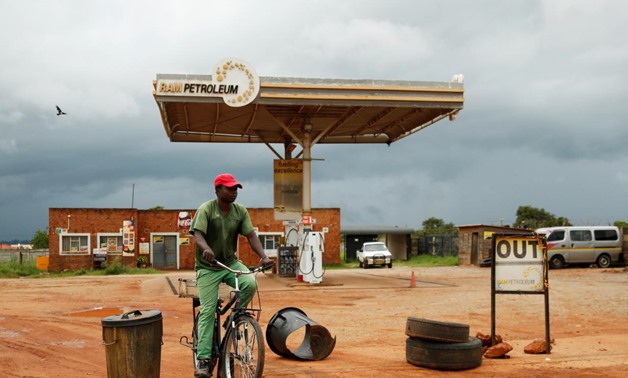
Soldiers patrol Zimbabwe streets after deadly protests over economy
HARARE - 15 January 2019: Soldiers patrolled Zimbabwe city streets on Tuesday as confrontations with demonstrators threatened to boil over, while banks, schools and businesses stayed shut a day after protests over the country's collapsing economy turned deadly.
Monday's unrest, during which several people died, followed sharp fuel price hikes decreed by President Emmerson Mnangagwa, who impatient Zimbabweans accuse of failing to live up to pre-election promises to kick-start growth.
Mnangagwa, absent on an official visit in Moscow, has also promised a clean break from the oppressive regime of long-term leader Robert Mugabe, who he forced out in a de facto coup in November 2017.
The president said Zimbabwe might need Russia's help in modernizing its army and was interested in receiving Russian loans, RIA news agency reported.
In Harare and Zimbabwe's second city Bulawayo, witnesses said security forces were deploying to halt demonstrations, and many people in the capital said they could no longer access the Internet.
"We are suffering. Mnangagwa has failed this country. Enough is enough, we no longer want this," said protester Takura Gomba in Warren Park, a Harare township, as he and a group of others retreated when they saw soldiers approach in trucks.
A human rights lawyers' group said it had received reports of soldiers and police breaking into homes in townships overnight and assaulting suspected demonstrators.
Defence Forces spokesman Overson Mugwisi, police spokeswoman Charity Charamba said they could not immediately comment, as did the country's three mobile telecoms firms.
TEAR GAS
Mnangagwa - a one-time protege of Mugabe who served the post-independence leader as defence and state security minister - faces a daunting task in trying to resolve what is Zimbabwe's worst economic crisis in decade.
The decline has been marked by a severe shortage of dollars in circulation that - in an echo of the Mugabe era - has triggered a return to high inflation and shortages of fuel and drugs.
Following Monday's unrest, in which the government said several died and some 200 people were arrested, the Zimbabwe Congress of Trade Unions called for three days of stay-at-home protests.
But while shops and businesses remained shut in the capital and in Bulawayo and few residents ventured out, protesters were gathering again.
In Kuwadzana township on the outskirts of Harare, riot police deployed to block demonstrators from marching into town while an army helicopter circled overhead, firing tear gas to disperse them, witnesses told Reuters.
Many people in the capital said they could no longer access social media platforms, and suspected that authorities had blocked the Internet.
The Zimbabwe Lawyers for Human Rights (ZHLR) said it had received distress calls from residents in Harare's Mabvuku and Chitungwiza who were forcibly taken from their homes on Monday and made to remove barricades from roads - a tactic used by Mugabe's security agents.
"Of concern is the involvement of soldiers in these illegal acts who are actively participating in the cruel and inhuman treatment of residents," ZLHR said in a statement.
A Bulawayo-based local journalist told Reuters that police had fired tear gas in the township of Cowdray Park on Tuesday, to stop protesters from looting some shops. Youths who blocked roads were demanding money from motorists to allow them to pass.
The government blamed the opposition and rights groups for Monday's violence.
On Tuesday, the Ministry of Information said it was looking for a man seen on videos posted on social media brandishing an assault rifle in Harare and giving orders to motorists.
"Where did he obtain the assault weapon ...He is suspected of shooting some innocent civilians," the ministry said.

Comments
Leave a Comment